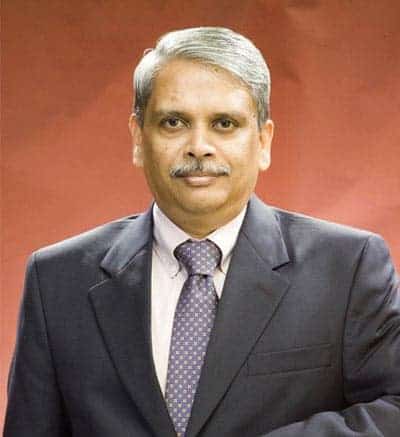Kris Gopalakrishnan is the chief executive officer and co-founder of the Indian-based IT services company Infosys, which is one of the biggest IT-services firms in the world with 88,000 staff

How did you first get into physics?
When I was at school, I found physics very interesting. I participated in science fairs because I liked to experiment and play around, and I also enjoyed reading about physics. I studied physics at Kerala University and then went on to do a masters in the subject at the Indian Institute of Technology at Chennai, which is one of the leading science and engineering institutes in India.
How much did you like your university life?
I really enjoyed those days. But as I progressed through my physics Masters I became interested in electronics, and from electronics I got into computer programming. I then had an opportunity to switch course to computer science, so I completed my Masters in physics and then did another Masters in computing.
What did you do after that?
I took a job as a software developer with Patni Computer Systems in Mumbai, where I stayed for two years. Then, together with six other software engineers from Patni, I set up Infosys in 1981.
What does Infosys do?
Infosys is a global IT-services company that delivers technology-enabled business solutions that help firms to compete in a globalized economy. It also provides a complete range of services by leveraging its domain and business expertise and its strategic alliances with leading technology providers.
What do you think is the key to your success?
Initially it was about having a clear vision of delivering technology remotely. In addition, since we wanted to do that from a country like India, which is a developing nation, we had to ensure the highest level of quality. In the 1990s we invested in improving the quality, so when the market really opened up and demand picked up we had a world-class service capability. This allowed the company to grow very rapidly without any impact on quality.
What have been your career highlights?
The first, of course, was starting up Infosys. Initially my focus was the engineering side and the technical side of the company — I was the technical director. Over time, however, I’ve worked in all of the functional areas, from R&D to support functions such as training, sales and marketing. In 2002 I became the chief operations officer, and in June last year I was appointed chief executive.
Does your physics training help the way that you work?
Yes, definitely. First, my interest in electronics, and hence the fact that I understand all the hardware as well as the software, gives me a really good appreciation of how computers work. My physics training also gives me the ability to look at problems in a very scientific and methodical way — to break down the problem into smaller pieces and then to try and solve them systematically. Finally, the fact that I studied in one of India’s best institutions gave me a lot of confidence that I could compete with the best people in the world and do very well.
Do you still keep up to date with any physics?
I don’t get much time, but I do try to read up on developments in the physics world — I keep up to date with the popular kind of physics.



